
In 1965, in his eulogy, Ossie Davis called Malcolm X, "Our Shining Prince".
Growing up in River Terrace, Washington, DC, my very early years were insulated from much of the madness that was going on in the country, at the time. I didn’t have any interaction with white people until I went to St. Emma Military Academy which was fifty miles west of Richmond, Va. I can remember hearing on the news, periodically, about two angry Negro preachers (and that’s what we were called then). One was in the south and the other in the north.
I couldn’t understand why they were so angry. I asked my father and he explained that these preachers were trying to make conditions better for Negroes. I was puzzled because I thought us, Negroes, had no problems. We could fish in the Anacostia when we wanted to. We could catch a game at Griffith Stadium and we could go to the movies for a quarter at the Langston or the Senator Theaters. What problems did we have?
In the summer of 1963, my father took my brother and I to a huge demonstration at the Lincoln Memorial to see one of those angry Negro preachers. The one from the south and, man, that was one hot day! I had never seen so many white people in my life! River Terrace was different. Everyone looked like me. My doctor looked like me. My teachers looked like me. My dentist looked like me. I didn’t know what to think of this mass of humanity, but they were so nice to my brother and me. My father lifted me up on his shoulders to see this preacher who looked like my father, talking to all of these white people.
One day, on my way home from Woodson Junior High School, I remember hearing some grownups shouting, “they killed him… they killed him!”.
The Muslim preacher is dead! What’s a Muslim?
My first year at St. Emma, I met other Negro kids from all over the world! The guys from New York were so cool. They spoke differently. Their music was exotic, latin and jazz. They wore beautiful sweaters on the weekend called Blye’s. They talked politics. They talked about that Muslim man that was killed the year before. The New Yorkers spoke with passion about him, the kind of passion that made you want to know about this man.
The Autobiography of Malcolm X
One of the cool guys from New York stuck a paperback book in my hand. Read it! Malcolm X’s life was so different than my own. Those same white people that were so nice to my brother and me killed Malcolm’s father when he was just a boy. His father was a preacher like my father. I couldn’t imagine my father being killed. Now, I understand why he was so angry.
I couldn’t understand why they were so angry. I asked my father and he explained that these preachers were trying to make conditions better for Negroes. I was puzzled because I thought us, Negroes, had no problems. We could fish in the Anacostia when we wanted to. We could catch a game at Griffith Stadium and we could go to the movies for a quarter at the Langston or the Senator Theaters. What problems did we have?
In the summer of 1963, my father took my brother and I to a huge demonstration at the Lincoln Memorial to see one of those angry Negro preachers. The one from the south and, man, that was one hot day! I had never seen so many white people in my life! River Terrace was different. Everyone looked like me. My doctor looked like me. My teachers looked like me. My dentist looked like me. I didn’t know what to think of this mass of humanity, but they were so nice to my brother and me. My father lifted me up on his shoulders to see this preacher who looked like my father, talking to all of these white people.
One day, on my way home from Woodson Junior High School, I remember hearing some grownups shouting, “they killed him… they killed him!”.
The Muslim preacher is dead! What’s a Muslim?
My first year at St. Emma, I met other Negro kids from all over the world! The guys from New York were so cool. They spoke differently. Their music was exotic, latin and jazz. They wore beautiful sweaters on the weekend called Blye’s. They talked politics. They talked about that Muslim man that was killed the year before. The New Yorkers spoke with passion about him, the kind of passion that made you want to know about this man.
The Autobiography of Malcolm X
One of the cool guys from New York stuck a paperback book in my hand. Read it! Malcolm X’s life was so different than my own. Those same white people that were so nice to my brother and me killed Malcolm’s father when he was just a boy. His father was a preacher like my father. I couldn’t imagine my father being killed. Now, I understand why he was so angry.
The cool New Yorker gave me other books. That year, I never read so many books before that weren’t school assignments, in my life! St. Emma was very insular and we didn’t know much about the racial tension that was going on in the country at the time. The cadets at school depended on information that was received through letters. If a cadet didn’t get a letter, he would read another cadet’s letter. The guys received word about the struggles in our hometowns and we read more books and discussed what we read.
That dude is crazy!
Lemuel broke out in a Dashiki! I had never seen one before. Lem was spouting all this crazy stuff about we come from Africa and we should be proud of our heritage. I think he changed his name, too. Malcom X got rid of his slave name so Lem did too, I guess. I didn’t think the “good reverend” was ready for me to change my name, but Lem was entertaining!
It wasn’t until years later that I realized that Lem and the cool guys from New York were setting the foundation for my appreciation of Malcolm X and all that he stood for. I truly believe that Dr. King was successful in what he did, due in part, to the stature of Malcolm X on the national scene. As a young man, I couldn’t accept nonviolence as a tactic. Turn the other cheek in River Terrace? I don’t think so. The strength and integrity that Malcolm exemplified was a model for all of my peers.
Just before his untimely death, Malcolm X was becoming a world citizen. He was learning that not all white people were like those that had killed his father. He had made peace with himself and was preparing to start a new phase of his development that encompassed people of all races that were willing to work for the betterment of mankind.
Today, on his eighty-third birthday, I say, ‘thank you, Malcolm. You will never be forgotten.'
That dude is crazy!
Lemuel broke out in a Dashiki! I had never seen one before. Lem was spouting all this crazy stuff about we come from Africa and we should be proud of our heritage. I think he changed his name, too. Malcom X got rid of his slave name so Lem did too, I guess. I didn’t think the “good reverend” was ready for me to change my name, but Lem was entertaining!
It wasn’t until years later that I realized that Lem and the cool guys from New York were setting the foundation for my appreciation of Malcolm X and all that he stood for. I truly believe that Dr. King was successful in what he did, due in part, to the stature of Malcolm X on the national scene. As a young man, I couldn’t accept nonviolence as a tactic. Turn the other cheek in River Terrace? I don’t think so. The strength and integrity that Malcolm exemplified was a model for all of my peers.
Just before his untimely death, Malcolm X was becoming a world citizen. He was learning that not all white people were like those that had killed his father. He had made peace with himself and was preparing to start a new phase of his development that encompassed people of all races that were willing to work for the betterment of mankind.
Today, on his eighty-third birthday, I say, ‘thank you, Malcolm. You will never be forgotten.'











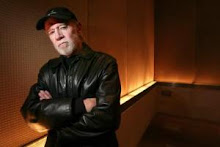
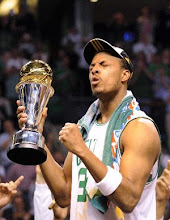


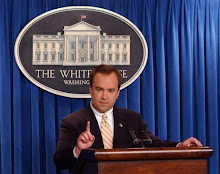
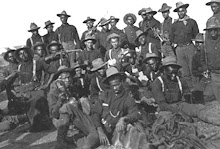


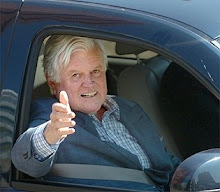







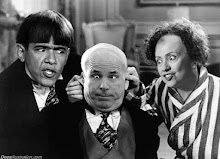




3 comments:
great post!
i was told from outsiders of DC that they wouldn't like for their children to grow up here. it's a false reality. were aren't exposed and really aware of what's going on outside of our black world....
Yummy,
This only expresses the importance of travel and speaking to people out of your comfort zone. Like Malcolm X, I like to think of myself as a world citizen. I know that deep inside of everyone there are the same basic hopes, dreams and fears that exist in me. If I’m correct, that gives me the ability to relate to anyone on some basic level, in DC, NY, Beirut, Iraq?…ok..ok….I’m might be stretching, but you get my point.
My father went to St. Emma about a decade before you did. He passed away recently and I was searching on the internet for his high school and your blog popped up. You can read my tribute to him on Blogger. Thanks for sharing your story.
Post a Comment